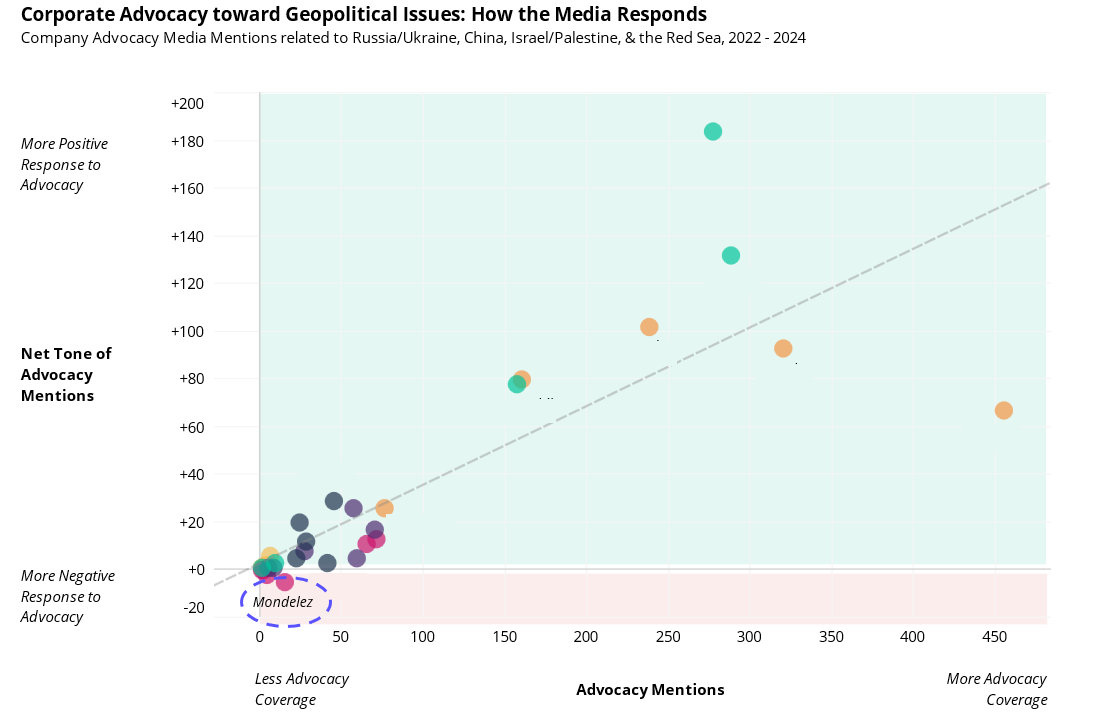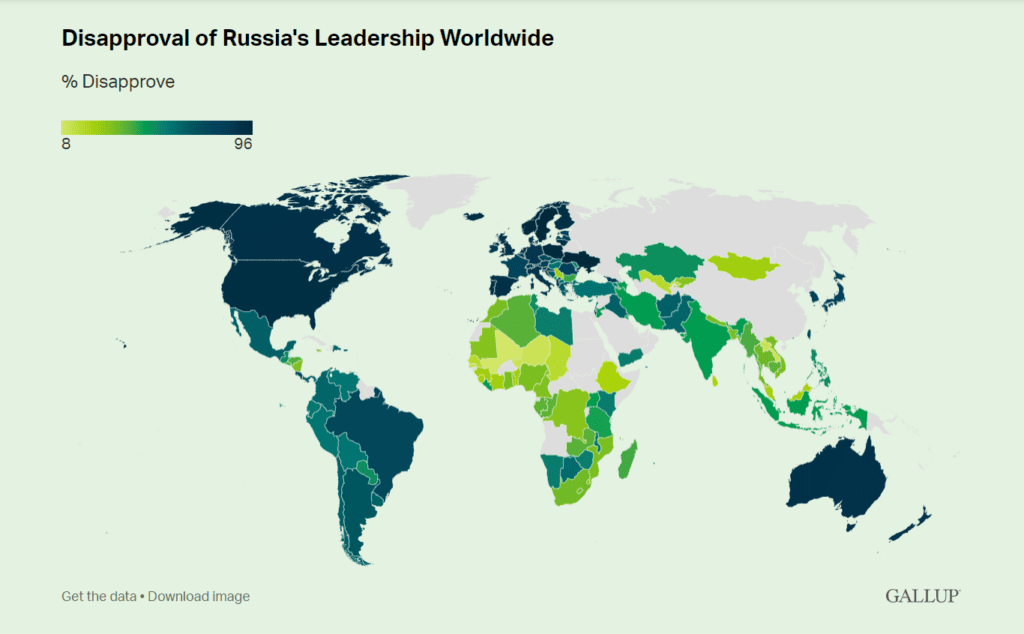
The alignment between a company’s public statements and its actions has never been more crucial. Reputation-reality gaps, i.e., inadequate actions to back up PR statements, are increasingly seen as hypocritical, damaging brand reputation, trust, and loyalty. An example that underscores this is the response to Mondelez following the invasion of Ukraine.
The company publicly announced intention to scale back operations in Russia, aligning with global sentiments against Russia and showcasing solidarity with the Ukrainian cause. However, despite its statements, the company continued to generate revenue and pay taxes in Russia. This discrepancy between its public commitments and ongoing business activities created a significant reputation-reality gap.
Consumers, especially in Europe, took notice. The perceived hypocrisy led to boycotts of Mondelez products across the continent. These boycotts weren’t just a fleeting reaction but a clear message from the public: companies must practice what they preach.
The situation with Mondelez (and Unilever, and Heineken, and more) serves as a stark reminder of the importance of consistency between words and actions. For brands, maintaining credibility requires more than just making the right statements.

The Importance of Alignment
In the age of information, consumers are more informed and empowered than ever before. They have access to a wealth of information at their fingertips and are increasingly holding companies accountable for their actions. Social media platforms amplify their voices, enabling them to share their opinions and mobilize others quickly.
For businesses, this means that the stakes are higher. Public statements are scrutinized, and any discrepancy between what a company says and what it does can quickly become a focal point for criticism.
When Mondelez announced its decision to scale back operations in Russia, they likely intended to align with global sentiments and show support for Ukraine. However, the continued revenue generation and tax payments in Russia told a different story. The gap between words and actions was seen as hypocritical, and the backlash was swift.

The Consequences of a Reputation-Reality Gap
The boycotts of Mondelez products in Europe highlight the tangible consequences of a reputation-reality gap. Boycotts can lead to a significant loss of revenue and market share. More importantly, they can damage the long-term relationship between a brand and its consumers.
When consumers feel that a company has been dishonest, their trust in that brand erodes. Trust is a fundamental component of brand loyalty. Once it’s broken, it’s incredibly challenging to rebuild. This is especially true in today’s competitive market, where consumers have numerous alternatives to choose from.
Moreover, the impact of a damaged reputation extends beyond just consumers. Investors, partners, and employees also take note of these discrepancies. A company that is perceived as hypocritical may struggle to attract and retain top talent. Investors may lose confidence in the company’s leadership and long-term strategy. Partners may reconsider their relationships, fearing that association with a discredited brand could harm their own reputation.
Lessons for Communicators and Business Leaders
The Mondelez case offers several important lessons for communicators and business leaders:
- Ensure Consistency Between Words and Actions: It’s not enough to make the right statements. Statements must align with actions, and communicators should inform other leaders within the organization of the importance of this consistency.
- Be Transparent: If there are challenges or limitations to what a company can do, it’s better to be upfront about them. Transparency builds trust and shows that the company is committed to being honest with its stakeholders.
- Monitor and Respond to Public Sentiment: It’s essential to stay attuned to public sentiment. Companies need to monitor media to understand how their actions and statements are being received. Prompt and appropriate responses can help mitigate potential backlash.
- Prepare for Crises: Despite the best efforts, crises can still occur. Companies need to have a robust crisis management plan in place to respond quickly and effectively. This includes having a clear communication strategy to address any gaps between words and actions.
Moving Forward
The case of Mondelez is a powerful reminder of the importance of aligning public statements with actions. In today’s interconnected world, consumers, investors, and other stakeholders are more vigilant and vocal than ever before. They expect companies to live up to their commitments.
For companies, this means that maintaining credibility requires a concerted effort to ensure that actions consistently align with words. It’s about being genuinely committed to the values and principles that the company espouses.
By doing so, companies can not only avoid the pitfalls of a reputation-reality gap but also build stronger relationships with their stakeholders. This in turn can lead to greater long-term success.
The high cost of a reputation-reality gap underscores the need for companies to act with integrity and consistency. The backlash faced by Mondelez and other companies serves as a cautionary tale for all businesses and a reminder that in today’s world, actions speak louder than words.
To learn more about ways you can measure and manage your reputation, contact us here.